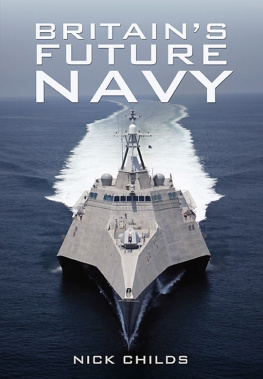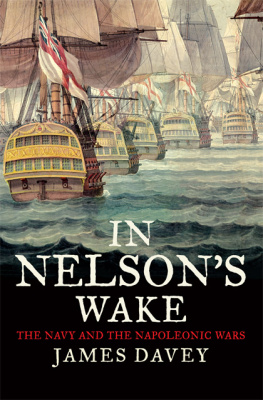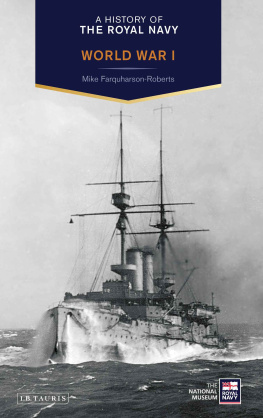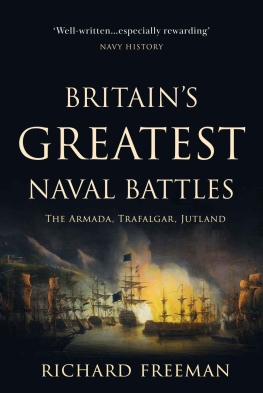PENGUIN BOOKS
THE SAFEGUARD OF THE SEA
N. A. M. Rodger is Professor of Naval History at Exeter University and formerly Anderson Senior Research Fellow, National Maritime Museum. He is the author of The Wooden World, The Insatiable Earl: A life of John Montagu, Fourth Earl of Sandwich and The Admiralty. The second volume of his naval history of Britain, The Command of the Ocean, is also published by Penguin.
THE SAFEGUARD OF THE SEA

A Naval History of Britain 6601649
N.A.M. RODGER

PENGUIN BOOKS
in association with the

PENGUIN BOOKS
Published by the Penguin Group
Penguin Books Ltd, 80 Strand, London WC2R 0RL , England
Penguin Group (USA) Inc., 375 Hudson Street, New York, New York 10014, USA
Penguin Books Australia Ltd, 250 Camberwell Road, Camberwell, Victoria 3124, Australia
Penguin Books Canada Ltd, 10 Alcorn Avenue, Toronto, Ontario, Canada M4V 3B2
Penguin Books India (P) Ltd, 11 Community Centre, Panchsheel Park, New Delhi 110 017, India
Penguin Group (NZ), cnr Airborne and Rosedale Roads, Albany, Auckland 1310, New Zealand
Penguin Books (South Africa) (Pty) Ltd, 24 Sturdee Avenue, Rosebank 2196, South Africa
Penguin Books Ltd, Registered Offices: 80 Strand, London WC2R 0RL , England
www.penguin.com
First published by HarperCollins 1997
Published in Penguin Books 2004
Copyright N. A. M. Rodger, 1997
All rights reserved
The moral right of the author has been asserted
Except in the United States of America, this book is sold subject to the condition that it shall not, by way of trade or otherwise, be lent, re-sold, hired out, or otherwise circulated without the publisher's prior consent in any form of binding or cover other than that in which it is published and without a similar condition including this condition being imposed on the subsequent purchaser
ISBN: 978-0-14-191257-8
FOR SUSAN

As for naval skills, they [the Spartans] will not find them easy to acquire. You yourselves have scarcely mastered them, having worked at them ever since the Persian war Seamanship is an art like any other; it is not something which can be picked up in one's spare time, indeed, it leaves no leisure for anything else.
Pericles addresses the Athenians
Thucydides, History of the War between Athens and Sparta I, 142.
CONTENTS
1 The Three Seas
(660899; Ships 6601066)
2 The First English Empires
(9001066)
3 The Partition of Britain
(10661204)
4 Fall of the House of Anjou
(Operations 12041266; Administration 12041216)
5 Ships of War
(Ships 10661455)
6 The Northern Wars
(Operations 12661336)
7 Edward III at Sea
(Operations 13361360)
8 Decline and Fall
(Operations 13601410)
9 The Chief Support of the Kingdom
(Administration 12161420)
10 Captains and Admirals
(Social History 12041455)
11 End of the Empire
(Operations 14101455; Administration 14201455)
12 Change and Decay
(14561509)
13 Departed Dreams
(Operations 15091523)
14 Precarious Isolation
(Operations 15231550)
15 The Flower of England's Garland
(Operations 15501572)
16 The Galley and the Galleon
(Ships 15091602)
17 The Council of the Marine
(Administration 15091574)
18 The Spanish War
(Operations 15721587)
19 The Advantage of Time and Place
(Operations 1588)
20 The Method of Jason
(Operations 15891603)
21 The Path to Fame
(Social History: Officers 15091603)
22 Sailors for my Money
(Social History: Men 15091603)
23 The Undertakings of a Maiden Queen
(Administration 15741603)
24 No More Drakes
(Operations 16031630)
25 The Inward Cause of All Disorders
(Administration 16031630)
26 A Diamond in his Crown
(Operations and Administration 16301639; Ships 16031639)
27 One and All
(Social History 16031639)
28 The Fall of Three Kingdoms
(16401649)
MAPS
ILLUSTRATIONS
Unless marked otherwise all illustrations are held in copyright by the National Maritime Museum, Greenwich.
ILLUSTRATIONS IN TEXT
A reconstruction of a Viking longship
(Viking Ship Museum, Roskilde)
The profile of the Grace Dieu of 1416
(Mariner's Mirror 1968)
A West Highland galley
(Late Medieval Monumental Sculpture in the West Highlands)
FOREWORD
We have it on weighty authority that great abilities are not requisite for an historian; for in historical composition, all the greatest powers of the human mind are quiescent. He has facts ready to his hand; so there is no exercise of invention. Imagination is not required in any high degree; only about as much as is used in the lower kinds of poetry. Some penetration, accuracy, and colouring will fit a man for the task, if he can give the application which is necessary. For that, as Dr Johnson well knew, even the least talented writer needs a patron. This book is the first fruit of a generous act of joint patronage by the National Maritime Museum, the Society for Nautical Research and the Navy Records Society, which together decided to apply a legacy from that eminent maritime historian, the late Dr R. C. Anderson, to support the writing of a new naval history of Britain. To the Councils of the two Societies and to the Trustees of the Museum, which also named me as its Anderson Fellow for the duration of the project, I am profoundly grateful. Without them I could not have undertaken the work, and whatever usefulness it may prove to possess, is owing to their support. I owe an especial debt of gratitude to Admiral of the Fleet Lord Lewin, formerly Chairman of the Trustees of the Museum, and to Dr R. J. B. Knight, its Deputy Director, who played a large part in setting up the arrangement. I must also thank the numerous colleagues in the Library and elsewhere in the Museum who supported the project in various ways.
I owe an additional debt of gratitude to the Museum, and to Mr Christopher Grey in particular, for obtaining the illustrations. The maps were prepared with the help of grants from the British Academy, the Marc Fitch Fund and the Scouloudi Foundation, to all of which I express my sincere thanks. Many others, friends, colleagues and strangers, have helped me. For references, advice, copies of manuscripts, help with translation and sundry offices of friendship I thank Dr Alex Hildred and Mr C. T. C. Dobbs of the Mary Rose Trust, Mr Richard Barker, Dr Martin Brett, Dr Jan Glete, Dr Poul Holm, Dr Gillian Hutchinson, Captain Niels Probst, Mr David Proctor, Dr H. M. Scott, and my brothers Messrs A. D. A. and J. H. S. Rodger. Dr Anne Crawford, Dr Julia Crick, Professor John Gillingham, Dr Elizabeth Hallam, Professor P. D. A. Harvey, Professor David Loades, Dr Susan Rose and Dr Andrew Thrush were generous enough to read parts of the manuscript and give me their comments. Professor Geoffrey Parker undertook the heroic labour of reading the whole, at high speed and short notice, putting me under an additional obligation to add to the many I already owe him. The authors of the numerous unpublished theses listed in the bibliography (or in some cases the respective university libraries) kindly gave me leave to cite them.













